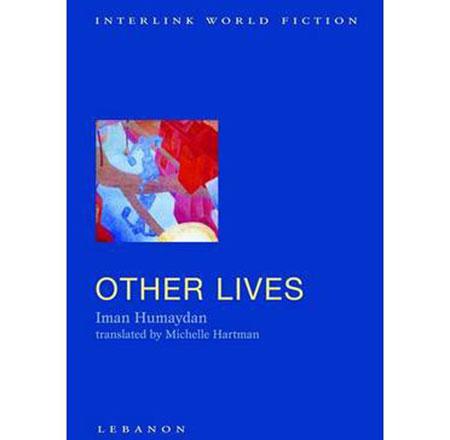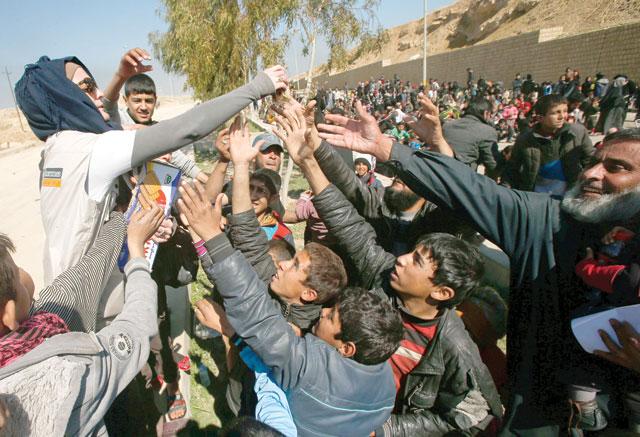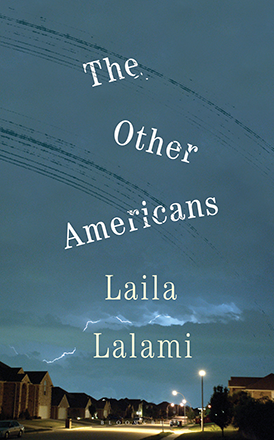You are here
Always on the verge of leaving
By Sally Bland - Oct 12,2014 - Last updated at Oct 12,2014

Other Lives
Iman Humaydan
Translated by Michelle Hartman
US: Interlink Books, 2014
Pp. 153
Returning to her native country, Lebanon, after fifteen years spent in Australia and Kenya, gives Mariam final proof of her state of displacement and transience — always being on the verge of leaving (symbolised by thirteen suitcases kept on the ready in her Mombasa home). She’s coming to reclaim the family house, to see her grandmother and old friends, and to trace her old love who disappeared when her family emigrated at the height of the civil war. “Or,” she asks herself, “did I come to settle old scores with a war that broke up my family, destroyed our dreams and every kind of permanence?” (p. 9) Just as unclear as her motives is whether she will leave again or stay.
“Other Lives” is a novel built on an inner voice, that of Mariam, the narrator and protagonist, and her dialogue with those she encounters. Not too much happens in now-time (1995), but one is immediately drawn into the novel’s rich prose as Mariam records her observations of post-war Beirut, family memories, snatches of Lebanon’s history, the war and exile experience. It is noteworthy that the author chose Australia as an exile site since so many Lebanese (and other Arabs) have immigrated there, but to date, there is less literature about their experience than about immigrants to the United States. According to Mariam, in Adelaide, “These Lebanese families cared for their gardens and grew trees that reminded them of their villages and perhaps even their homes in the Lebanese mountains.” (p. 8)
Fear is what triggered Mariam’s state of impermanence — a fear born of war’s random and devastating violence, specifically the rocket explosion that killed her brother and left her father deranged and her mother locked in silence. How Mariam responded to this tragedy is less tangible. She developed techniques for interacting with people, married and did various kinds of work, but an undercurrent of panic, pain and loss remained inside her, causing recurrent migraines and ennui. Early on in Australia, she learned, “To kill fear, it isn’t enough to move to another country… It’s already taken root inside of us and so in order to kill it we first have to kill something inside ourselves… But what remains after that?... Does memory remain, for example? Or does it become like a blank page? And what should we fill it with?” (p. 10)
Actually Mariam has plenty of memories, and recalling them overwhelms her return to Beirut and the mountains, giving the novel a non-linear structure which parallels her thought processes rather than the order in which events occur. Surprisingly, this spiralling plot is not difficult to follow, because of Humaydan’s skillful writing. It is something like an oil painting where each memory adds a new layer and luminosity to the one before. What holds one’s attention is the intimate tone and emotional honesty with which Mariam tells her story. One follows breathlessly, hoping she will find closure, but knowing deep inside that she probably won’t. Hers is a “suspended life”, lived in a “state of being in-between” different places and times. (p. 13) She tries to find her country in relations with others but this is never easy.
The book title recurs in the story, assuming many nuances. Mariam’s family is Druze, and occasionally “other lives” refers to the Druze belief in reincarnation. Mariam often feels she is living another life; every place is another life, but it is more than that; it’s related to disconnectedness: “My life feels like interrupted sequences of time, like scenes in a film that begin just as another scene ends. My memory… is not continuous, but circular. I always come back to where I began.” (pp. 12-13) She is dissatisfied with the explanation of her psychiatrist in Mombasa, who says that is just how women remember things, but finds solace in the words of her Kenyan gardener, in whom she confides more than her British husband. He says he can “live multiple lives while in the very same place”. (p. 35)
In evocative prose, Humaydan has written a deeply personal story that is also a public outcry against war, showing that the damage does not end when the guns fall silent, but lives on in the hearts and minds of all those concerned. Her story is convincing because she is passionate about the subject as evidenced by her having done extensive research on the disappeared and other post-war topics. Like in her other novels, “Wild Mulberries” and “B is for Beirut,” she conveys particularly Lebanese scenes in universally understood terms, and trauma in an understated, yet incisive manner. For a short novel, “Other Lives” is quite complex, which one only fully appreciates after reading Michelle Hartman’s note on the challenges of translating it. The result of her efforts is fluid and poignant.
Related Articles
The Weight of ParadiseIman HumaydanTranslated by Michelle HartmanMassachusetts: Interlink Books, 2016Pp.
MOSUL — Abu Mariam’s spacious villa sits in an upscale Mosul district, but when Iraq’s second city became a war zone, the family sough













